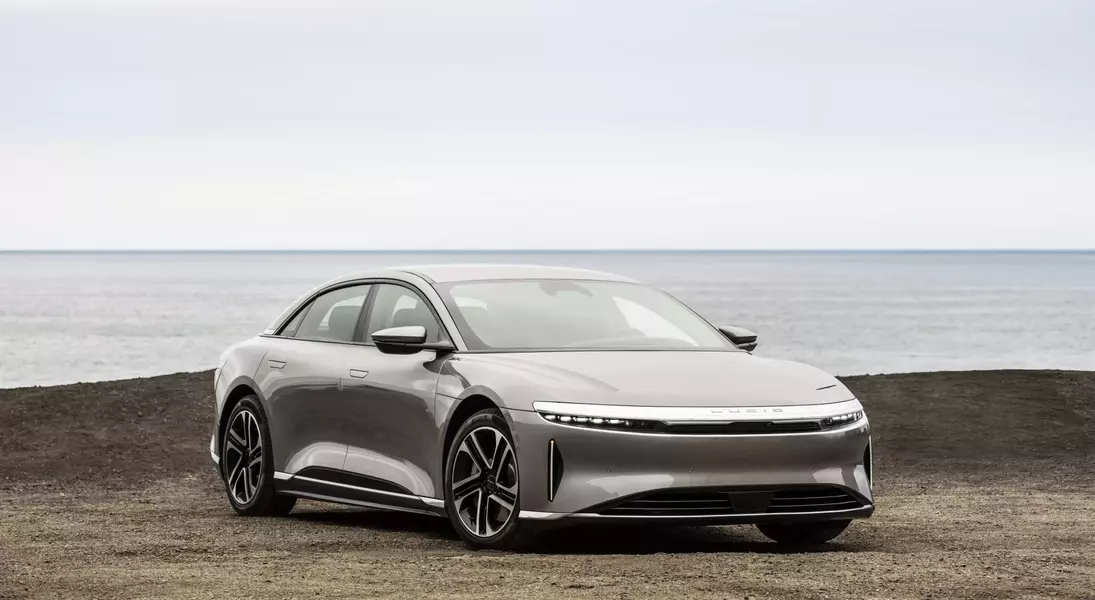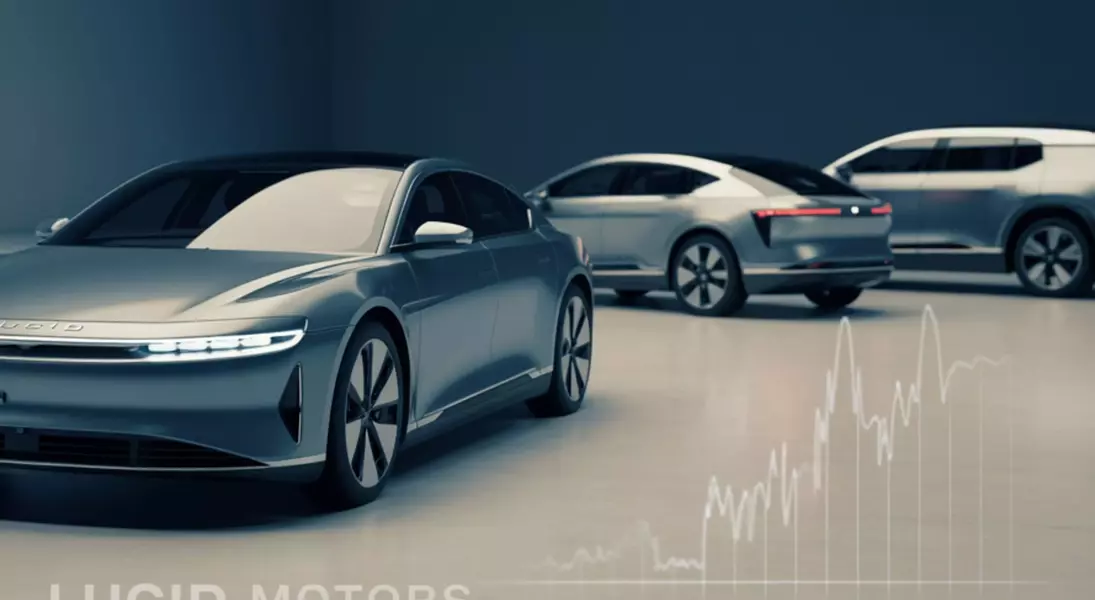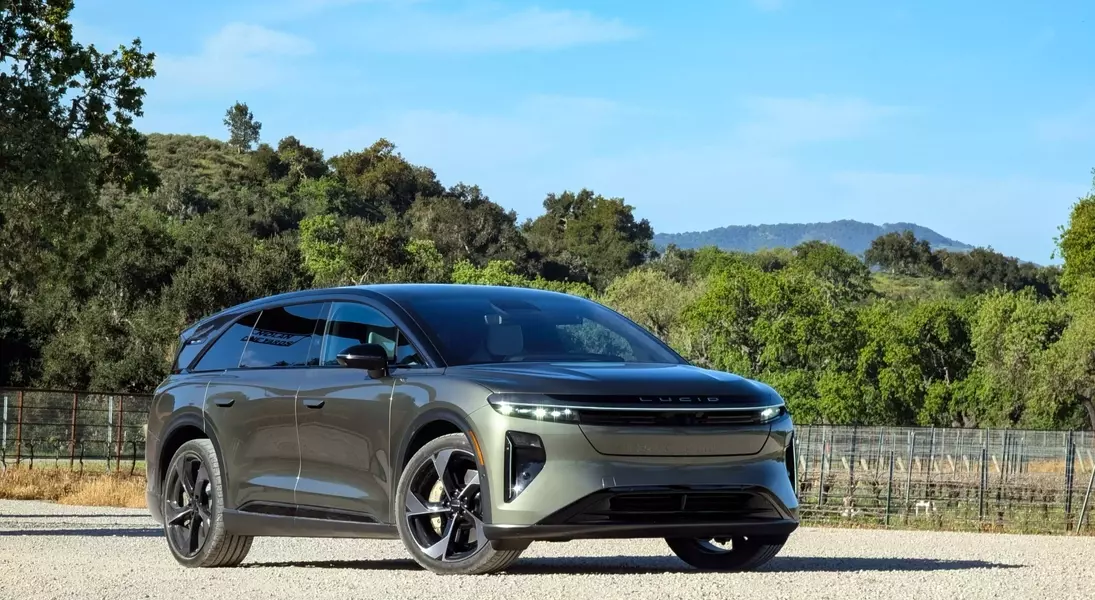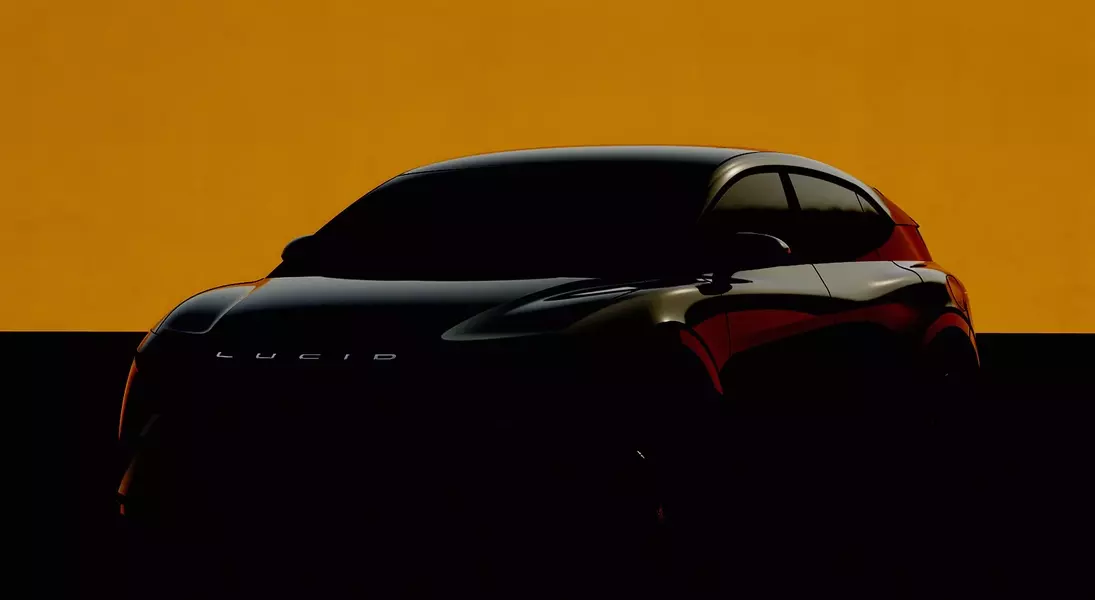






Lucid Motors, an electric vehicle startup, is embarking on an ambitious expansion strategy, aiming to introduce a trio of more accessible mid-size EV models by late 2026. This initiative comes at a critical juncture for the company, which has encountered obstacles in its current production and experienced a slower-than-anticipated market entry for its Gravity SUV. The company's new CEO, Marc Winterhoff, has openly acknowledged the necessity of securing substantial additional investment to bring these future models to fruition, as Lucid navigates financial constraints and a dynamic global EV landscape. The success of these new offerings, which are projected to enter the market at a price point under $50,000, is heavily dependent on the company's ability to attract the required funding and optimize its operational efficiencies.
The journey for Lucid Motors has been marked by both innovation and challenges. Despite its advanced technology and the luxury positioning of its initial Air sedan, the company has struggled with production bottlenecks and sales figures that have not met expectations. The recent introduction of the Gravity SUV was intended to boost market presence and revenue, but its launch has been hampered by unforeseen difficulties. In parallel, the broader EV market is undergoing a period of transformation, characterized by increasing competition from both established players and emerging entrants, notably from the Chinese market. Furthermore, shifts in governmental policies, such as the phasing out of federal EV tax credits, add another layer of complexity to Lucid's financial planning and market penetration strategies. The company's ability to adapt to these external pressures while simultaneously executing its internal development plans will be crucial for its long-term viability.
The Ambitions of Lucid: Expanding into the Mid-Size EV Segment
Lucid Motors, a prominent player in the electric vehicle industry, is set to significantly broaden its product offering by introducing three new mid-size EV models, with the first slated for release in late 2026. This strategic move aims to tap into a more accessible market segment, contrasting with its current luxury-oriented vehicles. The company's CEO, Marc Winterhoff, has revealed that these upcoming models will be built upon a versatile, common platform, allowing for diverse body styles. This expansion is critical for Lucid, especially given the lukewarm reception and production challenges faced by its Gravity SUV, which saw limited registrations in its initial sales period. While Winterhoff refutes certain negative reports about Gravity's performance, he acknowledges the slow start but maintains that demand outstrips current production capacity, indicating a ramp-up is underway. The success of these mid-size vehicles is paramount for Lucid's future growth and market positioning.
The introduction of multiple mid-size EVs signifies a pivotal shift in Lucid's market strategy, moving beyond its high-end Air sedan and the newly launched Gravity SUV to address a broader consumer base. These new models are expected to offer a more competitive price point, with estimates suggesting a starting price below $50,000, directly aiming to compete with popular models like the Tesla Model Y. Winterhoff indicated that the first of these mid-size vehicles is likely to adopt an SUV-like form factor, echoing the market trend towards utility vehicles. However, the exact configurations of the subsequent models remain undisclosed. This aggressive expansion into the mid-size category reflects Lucid's confidence in the long-term potential of the EV market, despite current slowdowns and increased competition. The company's ability to successfully execute this multi-model launch will determine its capacity to capture a significant share of the evolving electric vehicle landscape.
Navigating Financial Headwinds and Market Dynamics
Lucid Motors' ambitious plans for its new mid-size EV lineup are shadowed by significant financial challenges, as the company requires substantial new capital to fund these developments. Despite previous funding rounds, including a $1.75 billion investment last year largely backed by Saudi Arabia and an additional $1.1 billion in April, the company's cash reserves are dwindling faster than anticipated. CEO Marc Winterhoff has stated that while current funds will sustain operations through the first half of next year, more capital will be essential to ensure the mid-size vehicles reach production. This financial pressure is compounded by the slow rollout of the Gravity SUV, production bottlenecks, and external market factors such as the impending phase-out of federal EV tax credits and a general slowdown in EV sales growth. To mitigate the impact of expiring tax incentives, Lucid has initiated its own customer incentive program, further straining its cash flow.
The ongoing financial struggles of Lucid Motors underscore the capital-intensive nature of launching and scaling an electric vehicle manufacturer. The company has repeatedly sought new investment to maintain operations and fund future projects, indicating a persistent cash burn. With the CEO confirming the need for further funds beyond mid-2025, attention turns to major investors, particularly the Saudi Public Investment Fund, which holds a majority stake in Lucid. The company is strengthening its ties with the region by establishing an assembly plant in Saudi Arabia, which could be a strategic move to secure future investments. Beyond financial concerns, Lucid faces a dynamic and increasingly competitive EV market. New entrants, particularly from China, are intensifying the rivalry, while a broader slowdown in EV sales, influenced by shifting consumer sentiment and policy changes, presents additional hurdles. Despite these challenges, Lucid remains steadfast in its belief in the future of electric vehicles, viewing current market headwinds as a temporary phase. The company's ability to effectively manage its finances, secure necessary capital, and adapt to evolving market conditions will be crucial for the successful realization of its expanded product portfolio.
